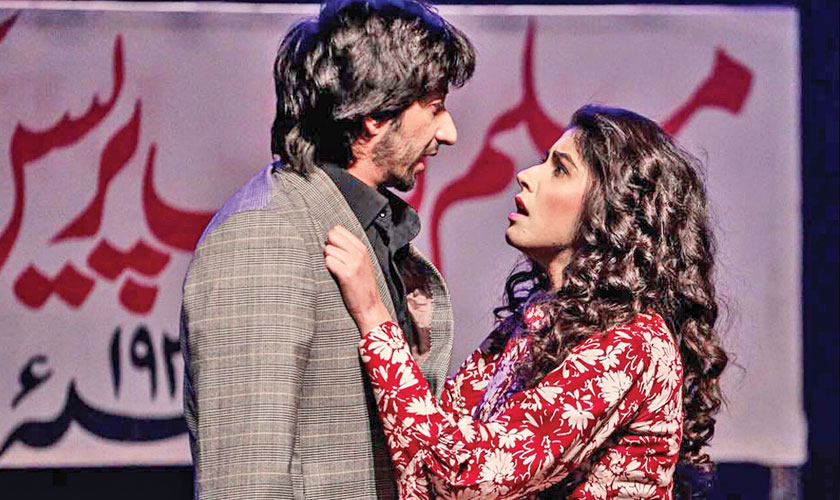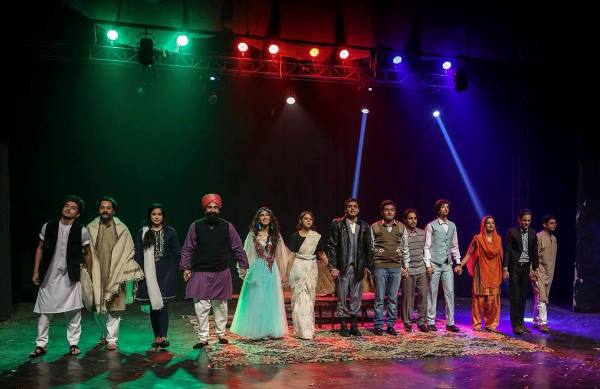Play Review: Hua Kuch Joon

Hua Kuch Yoon, written by Sajid Hussain and directed by Dawar Mehmood, is a 90 minute production that traces the story of two lovers, set against the complicated backdrop of Indo-Pak relations. The play is currently being staged at the Karachi Arts Council and has created quite a buzz on social media.
Unfortunately, it fails to deliver to the audience’s expectations. The lack of chemistry between the lead actors and the over the top histrionics of the protagonists just makes it harder to evoke any feelings of sympathy.
The play revolves around Quratulain and Raja, survivors of the Jallianwala Bagh massacre of 1919, and follows their lives for eight decades. Apart from the physical partition of the two countries, their distinctly opposing political views also stand in the way of their union. Although the premise of the play is intriguing and the storyline has scope, the focus often shifts away from plot progression or character development. Despite a strong opening scene, the play became disorganized and directionless as it progressed. For instance, a long ‘bazaar’ sequence was awkwardly placed in the first half of the play, which made little sense both in itself and in the overall story. In addition, an elaborate dance performance was put up near the end of the play, which diluted the impact of a rather intense lovers reunion and left the audience in confusion. Both these sequences where at best mildly entertaining and didn’t do much other than prolong the play.

There were multiple instances when the play showed potential but then faltered yet again. It often seemed that rather than its characters, the play itself was struggling to find identity. The roguish and witty one-liners got a few laughs and had the play capitalized on humour to tell the story, it would have worked better. The actors failed to convey the intensity of the lovers’ relationship and the tragic love story element seemed forced. In addition, the divorce between the style of narration and the acting created a sense of unease. The play was largely traditional in its dialogue, storyline and staging. On the other hand, the narration between scenes was strangely casual in both diction and choice of words. Bereft of deft handling, the combination of conventional and post-modern elements did not work.
The only redeeming qualities of the play include the special effects and the extraordinary acting of the supporting cast. Taha Humayun, who played the role of Vanket, stole the show with his comic timing. Adil Bangash, who played the role of Khushwant Singh, was the only actor who was able to capture the pain of someone caught amidst Partition. His authentic Punjabi accent and body language undoubtedly added value to his character.

Overall, the play would have been more impactful if certain sequences were cut out altogether or altered in a way that provided more insight into the characters or the socio-political climate of Pakistan and India.
The marketing and PR team undoubtedly played its part by creating hype for the play but it seems like there was much ado about nothing!



